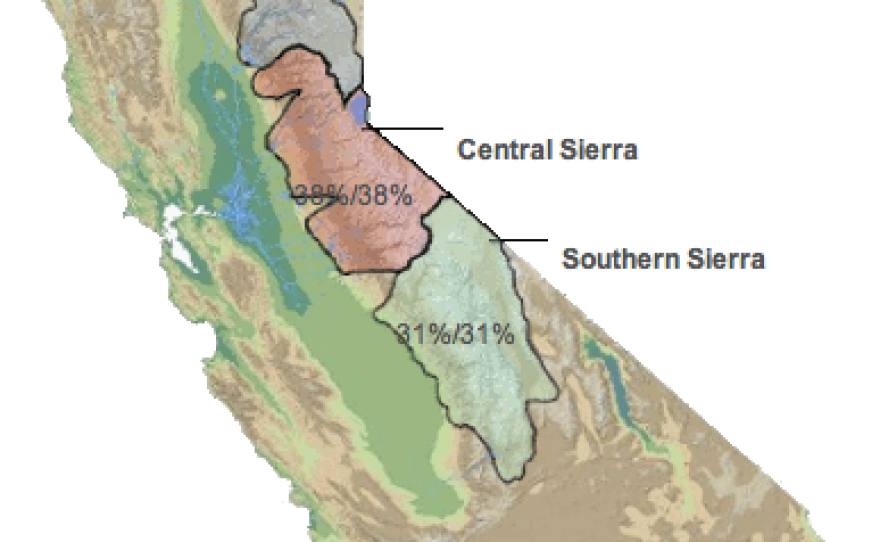
The Sierra Nevada snowpack hit a five-century low this year, according to a new analysis of tree rings published Monday in Nature Climate Change.
Lead author Soumaya Belmecheri of the University of Arizona said California's drought is having a historic impact on this crucial water source.
"The snowpack supplies 30 percent of water use in California," she said. "This means that reservoir of water is not available."
Earlier this year, Gov. Jerry Brown chose to announce mandatory water restrictions from the middle of a dry field in the Sierras. He meant to call attention to a snowpack so low, it broke all records.
But those official records only stretch back 100 years or so. Belmecheri and her colleagues wanted to reconstruct Sierra snowpack history going back centuries. So they had to find a natural record book. They found it in the rings of the blue oak tree.
Blue oaks were helpful for many reasons. For one, they're long-lived. And unlike most trees, blue oaks absorb rain during colder months, when storms bring snow to the Sierras. Belmecheri said that makes their annual rings "an amazing recorder of winter precipitation."
The researchers studied blue oaks from the Central Valley, because they lied directly in the path of storms that eventually brought snow to the mountains as they moved further east.
Comparing tree rings with temperature records, the researchers found no year in the past five centuries when the Sierra snowpack was lower than it was this past winter.
Belmecheri said high temperatures were partly to blame for this year's drastically reduced snowpack. She says as climate change pushes temperatures in California ever higher, record-low snowpacks could become more common in the future.







